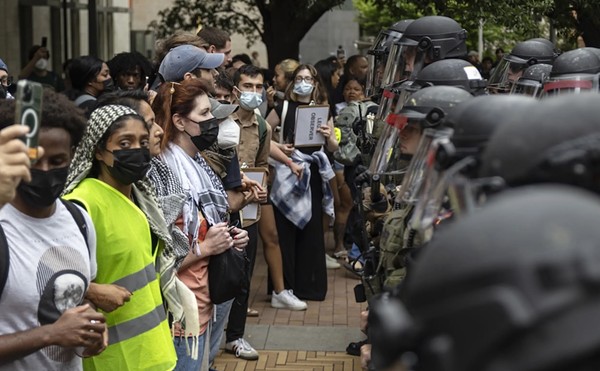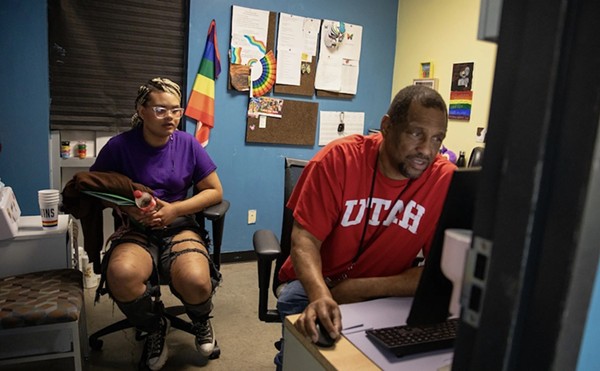Texans get green from Abramoff
Since 2000, nine Congressional members from Texas, including two from San Antonio, received a total of $58,750 from Jack Abramoff or Indian tribes he represented, according to the Center for Responsive Politics.
It is widely known that U.S. Representative Tom DeLay (R-Sugarland) and his political action committee, Americans for a Republican Majority, benefited from Abramoff’s largesse, receiving $28,500 since 2000; $26,500 was from Abramoff directly.
U.S. Representative Henry Cuellar, a Democrat from Laredo whose 28th District includes part of San Antonio, received $500 from the Tigua Indian tribe. U.S. Representative Henry Bonilla, a San Antonio Republican from District 23, took in $250 from the Tiguas and $2,000 from the Saginaw Chippewa Tribe.
Democrat Pete Sessions of Dallas also cashed in; his PAC received $7,000 from the Agua Caliente Band of Cahuilla Indians, $3,500 from the Coushatta Indian Tribe of Louisiana, $2,000 from the Mississippi Band of Choctaws, and $5,000 from the Saginaw Chippewas.
Other Texas lawmakers who added to their coffers include Republican Senators John Cornyn ($1,000 from Abramoff) and Kay Bailey Hutchison ($3,000 from Tiguas), Democrat Ken Bentsen ($2,000 from Cahuillas), Republican Kay Granger’s PAC ($2,000 from Cahuillas and Choctaws) and Republican Sam Johnson ($2,000 from Choctaws and Tiguas).
Curbing hispanic car crashes
According to the National Highway Traffic Safety Administration, motor-vehicle crashes are the leading cause of death for Hispanics ages 1 to 44 and, compared to other racial and ethic groups, Hispanics are more likely to drink heavily, drive after drinking, ride with a driver who has been drinking, and be arrested for impaired driving, and less likely to use safety belts.
In response to these statistics, the Texas Department of Transportation in November awarded a $300,000 three-year grant to the UT-Health Science Center’s South Texas Injury Prevention and Research Center for an educational campaign on traffic safety.
In the Madrina-Padrino Traffic Safety Project, STIPRC will partner with up to three community-based organizations that already work with parents, such as school districts. The organizations will act as “godparents” in the community, using parenting conferences to provide bilingual training in safety-belt use, child safety-belt use, and drinking and driving, and training parents to use media-outreach to promote traffic safety in their communities.
“It’s important to understand why Hispanics are at risk,” says STIPRC program coordinator Camarino Salazar. “There’s a tendancy to blame the victim and say, Oh they just don’t know any better. That’s not the case: There are environmental and social factors, such as limited education and language barriers, that place Hispanics at risk. Once we understand those, we can begin to work on the issue.”
For example, Hispanic children are less likely to be restrained in a car by a seatbelt or a child safety seat, which may be, Salazar says, because the parent is driving a car without the proper equipment or is unaware of the medical risks and costs of not restraining children. A San Antonio-based study found that 71 percent of Hispanic men surveyed were not well-informed about drinking and driving laws, including blood-alcohol limits.
The Madrino-Padrino project is modeled after a program piloted two years ago by the Hispanic American Police Command Officers Association in San Antonio, Tucson, and Los Angeles and it will use the same curriculum, adapted by STIPRC for San Antonio’s Hispanic community. Project activities include expanding the program in San Antonio and on the border.
“This program is especially important in San Antonio, where the Hispanics make up 60 percent of the population, but San Antonio mirrors what Texas will be some years down the road,” says Salazar. “So this program is important for reducing traffic fatalities here, but also for developing practices for reaching Hispanics in the future, throughout the state.”


















